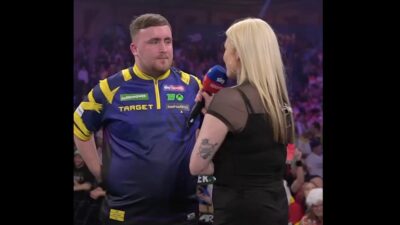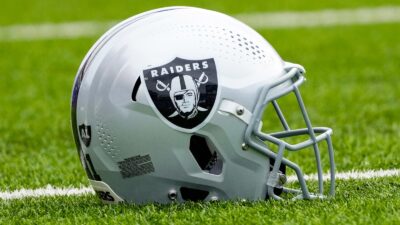 Let’s face it folks, Twitter is apparently here to stay. If Martin Luther King, Jr. had delivered his famous “I Have a Dream” speech some fifty years later, he might have needed to amend it to include the content of people’s 140 characters. It used to be that writing was something that was cherished, a skill that was passed along by the privileged few who were fortunate enough to have acquired the skill themselves. Now, the King’s English has been pulverized into acronyms and emoticons, the likes of which would have caused Homer, Virgil, and Plato to probably choke to death on repeated dangling modifiers.
Let’s face it folks, Twitter is apparently here to stay. If Martin Luther King, Jr. had delivered his famous “I Have a Dream” speech some fifty years later, he might have needed to amend it to include the content of people’s 140 characters. It used to be that writing was something that was cherished, a skill that was passed along by the privileged few who were fortunate enough to have acquired the skill themselves. Now, the King’s English has been pulverized into acronyms and emoticons, the likes of which would have caused Homer, Virgil, and Plato to probably choke to death on repeated dangling modifiers.
Not to be outdone, however, the schmendrik who is writing this needed four times to spell “privileged” correctly before I capitulated and had spell check throw a life preserver after nearly having drowned in a sea of unnecessary consonants. What does this have to do with sports? Funny you should ask, since I was just about to get to that, right after this period. I swear. OK, after this one.
There was a time in the annals of sports media, where athletes communicated thoughts, emotions, and various incoherent grunts to the press. The newsmen would then sit and furiously document what was said at their typewriters, computers, or use a prehistoric writing instrument that early humans called a pencil. Regardless, by the time this information saw the light of day, there were words and sentences, even a comma or two. Now, with the immediacy provided by technology, sports reporting has started to change.
The middleman — you know, the guy with the fedora — has now been marginalized by a few dozen keystrokes. The resulting missives look like someone took a fist to the keyboard in a fit of rage. It makes me wonder why I spent all those lost childhood years learning cursive. (Writer’s note: years of computer usage have now rendered my writing illegible to all but the most exclusive group of doctors and people who can read Cipher.)
Twitter has become so pervasive in society that world leaders, celebrities, and pro athletes are roundly “followed” so that these “followers” can get the most up-to-date news straight from these public figures themselves. It wasn’t too long ago that if you had followers, you were probably in a select group with Jim Jones, Marshall Applewhite, or David Koresh. In other words, probably not something about which you would brag.
Today, athletes burnish their credentials based on their number of followers. The hashtag used to be something that warranted a suspension, now it has become something of a talisman for Twitter Nation. Athletes can be routinely found, logging on and disseminating their latest piece of stream-of-consciousness opinions, grammar be damned.
Computers were once connoted with nerds, the latter being as athletically useless as the former. Despite the lack of reparations for every wedgie ever dispensed by a jock for spending too much time affixed to the QWERTY, the line between the two has been blurred. Perhaps it’s truly the Revenge of the Nerds, minus Lewis Skolnick and Gilbert Lowell: the nerds now have become the guys that make billions, while the Alpha Betas of the world are the ones using the medium to inadvertently make fools of themselves.
In the constant pursuit of a fleeting concept known as “Tweet Cred,” athletes have been able to prove the fact that book smarts don’t involve having said book thrown at you. Larry Johnson ranks highly as Commander-in-Mischief in littering Twitter with a slur that eventually led to his job as Kansas City Chiefs running back being frittered away. Reggie Bush used the social networking site to announce a very un-Gehrig-like departure from New Orleans after the Saints drafted Mark Ingram last spring. He tried to follow it up with a second missive that the previous message was a joke, but not many people were laughing. (Welcome to my world, Reggie.)
Certainly there have been plenty of instances of athletes posting junk on the site, whether that refers to the pointless or, uh, pointed pictures of the illicit. NFL players took their gripes to the Internet, wrangling on virtual fields rather than real ones during the lockout.
When Kevin Love tried to realize his dream of becoming a newsman, and revealing the firing of then-coach Kevin McHale a few years ago, he was pilloried and all but sent to McHale’s Navy.
The NFL has had to warn players in the past about tweeting from team meetings. This apparently also includes complaints about the gruel dished out during training camp, which cost Antonio Cromartie a few filets and some bottles of Dom Perignon in fine money. Assuming you can get by the other athletes who stir up controversy like Rashard Mendenhall’s infamous soliloquy voicing disbelief on why people were celebrating the death of Osama Bin Laden last Spring; and recently the Liverpudlian soccer player Nathan Eccleston, who attributed the September 11th attacks of ten years ago to the Illuminati — which I once thought was a group of people who worshipped neon signage — Twitter has become a breeding ground for every misplaced apostrophe, lack of capitalization, and “LOL” in the book (which is no longer being published ironically). I still haven’t figured out what “ROFL” is. Perhaps a laugh while something is caught in one’s throat?
Maybe Hell has frozen over. (Please overlook the sentences ending in prepositions for purposes of this grammatical indictment.) The proprietor of this fine site recently cajoled me (a word you probably won’t find Tweeted) into the Twitter world (awhatthedleeoh because I enjoy being a shill). Where I once was the hermit of social media, now I am a little more monk-like. I officially have 16 followers (make it 15, nope now 14), but am still trying to grasp the power of this athlete-cherished medium. Just last week I made valuable usage of this forum by posing the question whether Urban Meyer moving out of a major metropolitan area would necessitate him changing his name to Suburban Meyer. Ugh.
Twitter has been proven to be a powerful medium. It has effected change. It has brought our sports stars closer to the viewing public. It has helped to speed the flow of information, and change the way news is reported. It has been the main reason why I have accomplished nothing meaningful over the last two months.













